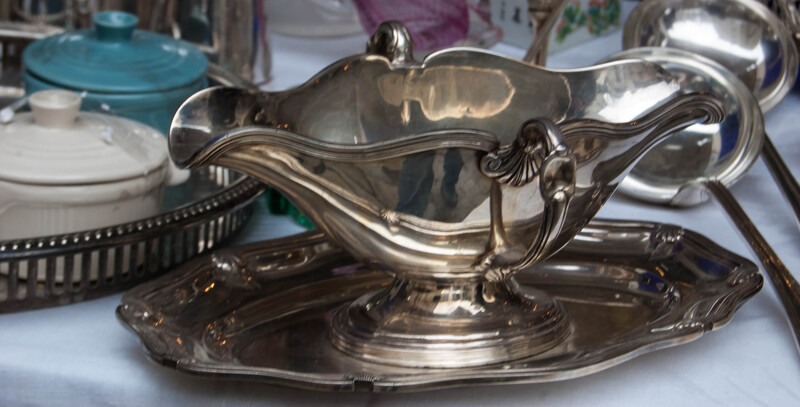Transforming Old Cookware: Disposal and Recycling Tips for Pots and Pans
In almost every home kitchen, there inevitably comes a time when much-loved pots and pans become scratched, warped, or just plain unusable. With environmental awareness on the rise, the question is no longer just about how to get rid of old cookware, but how to do so responsibly and creatively. If you're interested in transforming old cookware, learning how to dispose, recycle, and repurpose pots and pans can make a big difference for both the planet and your home. In this comprehensive guide, we'll walk you through smart, sustainable, and sometimes surprisingly ingenious ways to handle your old kitchenware.
Why Proper Pot and Pan Disposal Matters
Throwing cookware straight into the trash may be the most convenient solution, but it is rarely the best. Most pots and pans are made from metals or composites that do not break down in landfills, contributing to growing environmental waste. What's more, improper disposal sometimes means useful materials are wasted that could have been recycled or given new life. By choosing responsible methods, you help conserve resources, reduce pollution, and promote a more sustainable kitchen culture.

How to Tell When It's Time to Retire Kitchen Cookware
Sometimes nostalgia or cost-consciousness can tempt us to keep battered old pans far past their prime. However, using cookware that's damaged can be bad for your health and your culinary results. Here are key indicators it's time to consider pots and pans recycling or disposal:
- Dangerously scratched non-stick coatings, which could flake off into food.
- Warped or cracked bodies, causing uneven cooking or leaks.
- Handles that wobble or are missing parts.
- Heavy staining, rust, or corrosion inside or outside the pan.
Different Materials, Different Destinies
Understanding what your pots and pans are made from is critical for proper cookware recycling or disposal. Each material reacts differently to recycling processes, donation centers, or creative upcycling. Here's a breakdown:
1. Stainless Steel Pots and Pans
Stainless steel is highly recyclable. Most scrap metal facilities accept it, and it does not degrade through the recycling process. Check if there are any plastic handles or glass lids that need to be separated.
2. Aluminum Cookware
Aluminum pans, whether hard-anodized or basic, are also recyclable at most metal yards. Remove any attachments that aren't aluminum.
3. Copper Pots and Pans
Copper is valuable as scrap metal, so many facilities will gladly take it. Even worn copper pans are often welcomed by craftspeople for their artistic projects.
4. Cast Iron Skillets and Dutch Ovens
Cast iron can last generations but, if it's truly beyond repair, it's accepted by metal recyclers. Some specialized repairers may want old cast iron for restoration.
5. Non-Stick and Ceramic-Coated Cookware
These are more complex. Non-stick coatings can contaminate recycling, so check with local facilities before tossing them in with metal. Often, the best option for these is donation if they're in good condition, or upcycling for non-food uses if not.
Best Disposal and Recycling Tips for Old Pots and Pans
1. Donate Usable Cookware
The most sustainable first step is to donate old pots and pans that are still in usable shape. Many people are looking for affordable cookware in:
- Thrift stores
- Homeless shelters and outreach kitchens
- Charities or community kitchens
- Online community groups like Freecycle or Buy Nothing
Tip: Give pans a thorough clean and check for safety before donating. Be honest about any non-stick damage or flaws.
2. Sell or Gift Vintage Cookware
If you have vintage, heirloom, or branded pans (such as Le Creuset, Griswold, or All-Clad), you may be able to resell them online. Collectors, crafters, and even restaurants may pay for well-designed old cookware--sometimes for display, restoration, or culinary use.
3. Recycle Cookware at Scrap Metal Yards
Most community recycling services don't pick up cookware curbside. Instead, look for a local scrap metal facility. Prepare your pans for drop-off:
- Remove all plastic or wood handles, glass lids, and any non-metal parts.
- Group metals (aluminum, stainless steel, copper, etc.) if possible--yards may sort or even pay for certain kinds.
- Contact the site in advance to confirm what cookware materials they accept.
4. Participate in Manufacturer Take-Back Programs
Some major cookware brands, such as Calphalon or T-fal, have take-back or recycling initiatives. You return unwanted cookware, and the company responsibly recycles or upcycles it. Check brand websites for details or contact customer service directly.
5. Household Hazardous Waste Programs
If your non-stick pans contain Teflon or PFOA coatings and the metal can't be separated, ask your municipality about household hazardous waste (HHW) programs. These keep problematic chemicals out of the landfill and environment.
Creative Ways to Repurpose Old Pots and Pans
Not all cookware needs to leave your home to enjoy a second life! Repurposing and upcycling old pots and pans can be a satisfying DIY project, saving you money and adding character to your space. Here are inventive ideas for transforming old kitchenware:
Turn Pans into Planters
Pots, pans, and even muffin tins can serve as quirky planters. Drill drainage holes, fill with soil, and add your favorite herbs, succulents, or flowers. The handles often make hanging or carrying easy.
Chic Wall Art and Backsplashes
Arrange a set of vintage pans as a kitchen wall display. Polished copper pans or enameled cast iron can bring a rustic or industrial look to your space. For smaller pans, glue strong magnets on the back for instant fridge decor.
Bird Baths and Feeders
Attach an old pan to a sturdy base (like a wooden post or tree stump) and fill it with water or bird seed. You've just created a functional and eco-friendly spot for your feathered friends!
Storage Solutions
Use deep pots for storing gardening tools, kitchen gadgets, or even children's art supplies. Muffin tins can organize nails and screws in the garage or small office items.
Candle Holders or Lanterns
With some careful modification (and fire-safe materials), you can turn metal pans into dramatic outdoor lanterns or candle holders, perfect for summer evenings.
Environmental Benefits of Recycling and Repurposing Cookware
When you choose recycling or upcycling for your old pots and pans, you're doing more than decluttering your cabinets. The benefits reach far beyond your own home:
- Reduces landfill waste, where metals and coatings persist for centuries.
- Saves energy and resources--recycled metals require less energy to process than new materials.
- Decreases the need for mining, which can be polluting and destructive to local environments.
- Encourages creative reuse in homes and communities, inspiring others to rethink "waste."

Frequently Asked Questions About Disposing of Old Pots and Pans
Q1: Can I put pots and pans in my curbside recycling bin?
No. Most neighborhood recycling programs do not accept cookware with their regular streams. Take your items to a metal scrapyard or look for a program that specifically accepts cookware.
Q2: Are non-stick pans recyclable?
You'll need to check locally; many recycling facilities do not accept pans with non-stick coatings due to chemical contamination. If you remove all non-stick material (sandblasting, for example), the metal core may be recyclable, but this isn't usually practical for individuals.
Q3: Can rusted or heavily damaged cookware be donated?
No. Only donate items that can be safely used for food preparation. Severely rusted, flaking, or otherwise damaged cookware can pose health hazards and should go to scrap or be repurposed for non-food uses.
Q4: What's the best way to prepare my cookware for recycling?
- Clean off all food and residue.
- Separate out any non-metal parts (handles, lids, etc.).
- Group by metal type if advised by your recycler.
Conclusion: Give Your Old Cookware a Second Serving of Life
Transforming old cookware is about responsibility, resourcefulness, and creativity. By exploring eco-friendly disposal and recycling tips for pots and pans, you make a conscious decision that's kind to both the planet and your community. Whether you choose to donate, recycle, or upcycle, each action keeps quality materials in use, reduces waste, and even sprinkles a bit of personal flair back into your kitchen or garden. Don't let those rusty skillets and battered saucepans end up in the landfill--give them a chance at a new, sustainable purpose!
Ready to clear your cabinets and make a difference? Start your own cookware recycling or transformation project today!
```